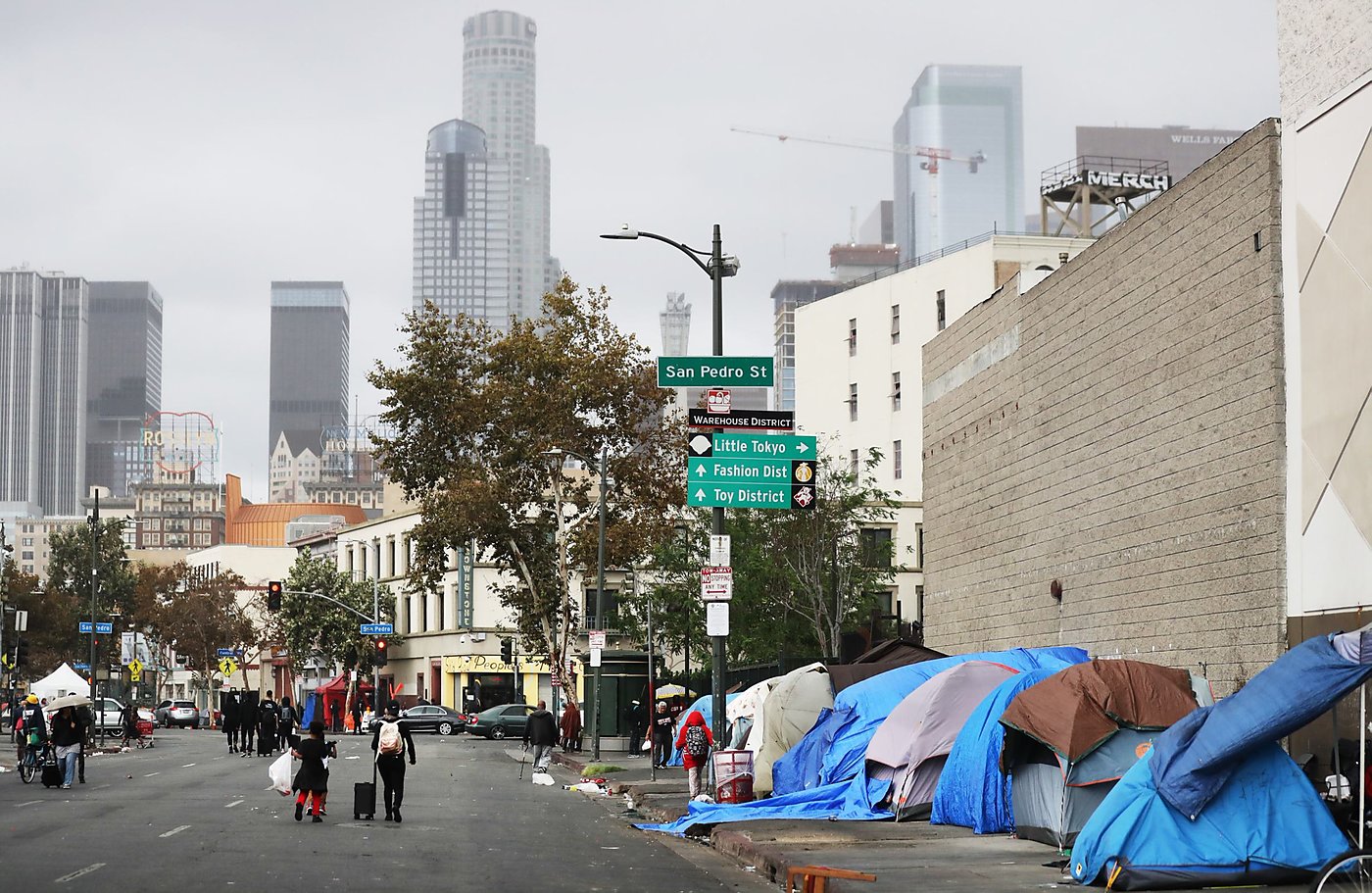A December 12 report in the UK Independent implies Elon Musk thinks most homeless people are “violent drug zombies with dead eyes, and needles and human feces on the street.” That’s an oversimplification, to say the least.
The report claims President-elect Donald Trump wants the government to force homeless people into drug treatment and mental institutions or face arrest. It cites the Trump/Vance Agenda 47 website:
[W]orking with states, we will BAN urban camping wherever possible.Violators of these bans will be arrested, but they will be given the option to accept treatment and services if they are willing to be rehabilitated. Many of them don’t want that, but we will give them the option.
We will then open up large parcels of inexpensive land, bring in doctors, psychiatrists, social workers, and drug rehab specialists, and create tent cities where the homeless can be relocated and their problems identified…
…And for those who are severely mentally ill and deeply disturbed, we will bring them back to mental institutions, where they belong, with the goal of reintegrating them back into society once they are well enough to manage.
Both Musk and Trump appear to give short shrift to a major cause of homelessness: a growing shortage of affordable housing. As Vanessa Calder Brown wrote in a Cato briefing paper, “Reforms that eliminate zoning, improve permitting speed, legalize greater housing density, and remove barriers to housing innovations—including co-living units, tiny homes, and manufactured homes—are all part of a successful strategy to reduce homelessness.” Building codes and land use and zoning laws are largely state-level issues.
Another key contributor to homelessness is mental illness. Two-thirds of homeless people have a mental illness, and up to 20 percent of the homeless may have schizophrenia. In many cases, mental illness is the force driving alcohol and illicit drug use. The Substance Abuse and Mental Health Services Administration points out that, in many cases, people with mental health problems “misuse these substances as a form of self-medication.”
Contra President-elect Trump’s proposal, the government coercing people, directly or indirectly, to undergo mental health or drug addiction treatment flagrantly assaults their autonomy. As psychiatrist and civil libertarian Thomas Szasz wrote in his classic work The Myth of Mental Illness: Foundations of a Theory of Personal Conduct, “Involuntary psychiatric interventions violate the fundamental moral and political principles of free societies and turn psychiatric authority into a species of despotism.”
Numerous studies have also failed to find evidence that involuntary mental health treatment is effective. There is some evidence it may increase suicidal tendencies.
Studies on the efficacy of mandatory drug rehab have also had negative results. Compulsory drug rehab has high relapse rates. There is also evidence that it increases the risk of subsequent overdose deaths among people released from rehab.
Enforcing public nuisance laws or penalizing actions like blocking streets, creating public health hazards, or disturbing the peace is not inappropriate or unjust. Incarcerating peaceful people who choose to live unhoused is. And coercing people with substance abuse and mental health problems to undergo treatment assaults their autonomy.
President-elect Trump’s pick for Secretary of Health and Human Services, Robert F. Kennedy, Jr, is seriously interested in reforming the public health agencies. Trump’s pick for the Food and Drug Administration, Dr. Marty Makary, has a history of challenging conventional narratives and welcoming outside-the-box ideas. One reform that both should consider, which can help mitigate the homelessness crisis, is ending the FDA’s Risk Mitigation and Evaluation Strategy (REMS) program it imposes on the drug clozapine—the only drug that the FDA has approved for treatment-resistant schizophrenia.
As Josh Bloom, PhD of the American Council on Science and Health, and I wrote in The Hill last month, “the REMS program has unintentionally created barriers that disproportionately affect individuals with severe mental illnesses like schizophrenia, further compounding the significant challenges they already face, including unemployment, substance abuse, heightened suicide risk and homelessness.”
An estimated 30 percent of schizophrenic patients do not respond to first-line antipsychotic drugs. Yet, clozapine is prescribed to only 4 percent of these patients in the United States—a situation that underscores a significant gap in treatment.
Bloom and I argue that REMS programs mandated by the government are redundant. Once the FDA approves a drug for marketing, manufacturers will monitor it for long-term risks to protect their reputation and avoid liability. Additionally, physicians prescribing high-risk medications routinely monitor their patients, as failing to do so constitutes malpractice.
There are about 653,000 homeless people in the US today. That population could be potentially reduced by 60,000–120,000 with easier access to a long-used, effective drug for schizophrenia. If the incoming Trump administration is serious about reducing homelessness, eliminating the FDA’s REMS program is a good place to start.


